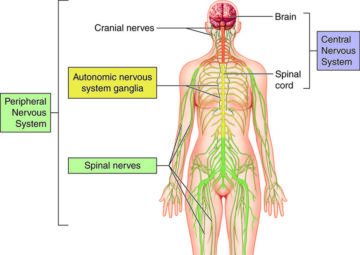Rivka Galchen at The New Yorker:
 Multiple sclerosis presents far more variously than most other illnesses; for that reason, it has been called “the great imitator.” Some of the conditions it can resemble are minor, and others are major. If you have ever Googled a random tingling or twinge or eyebrow twitch, you have probably spent at least one evening convinced that you have M.S. On the other hand, M.S. patients often think for a while that they don’t have much going on. One person’s first symptom might be numbness. A different patient might experience weakness. Or an unexplained fall, or fatigue, or difficulty urinating or walking. In the United States, the incidence is around three people in a thousand, which is either rare or common, depending on the emotional heft you ascribe to a third of one per cent of the population.
Multiple sclerosis presents far more variously than most other illnesses; for that reason, it has been called “the great imitator.” Some of the conditions it can resemble are minor, and others are major. If you have ever Googled a random tingling or twinge or eyebrow twitch, you have probably spent at least one evening convinced that you have M.S. On the other hand, M.S. patients often think for a while that they don’t have much going on. One person’s first symptom might be numbness. A different patient might experience weakness. Or an unexplained fall, or fatigue, or difficulty urinating or walking. In the United States, the incidence is around three people in a thousand, which is either rare or common, depending on the emotional heft you ascribe to a third of one per cent of the population.
Until recently, patients weren’t given medication before they were in distress; now treatment tends to come early, with the highest-efficacy drugs available. Oh, of the Barlo center, told me, “When I went into neurology residency”—in 2005—“the field was still sometimes called ‘diagnose and adios,’ because it seemed like there was so little that could be done for patients with these chronic neurological diseases,” such as M.S., Parkinson’s, A.L.S., and Alzheimer’s.
more here.
